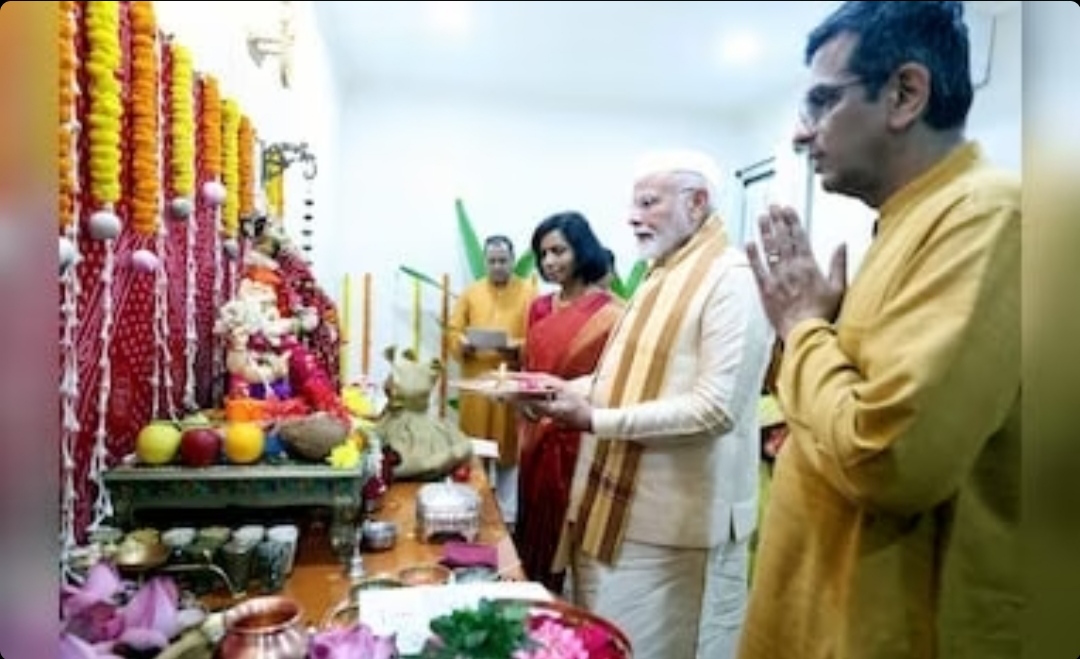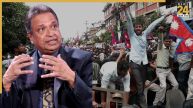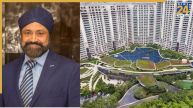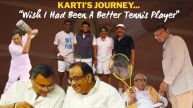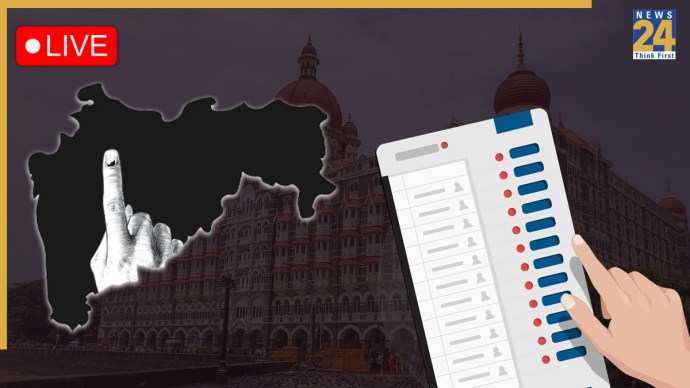PM Narendra Modi’s recent visit to Chief Justice of India (CJI) DY Chandrachud’s home for the ‘Ganesh Puja’ has sparked a debate over the intersection of politics and the judiciary in India. While according to the CJI, it was a ‘personal’ event, it has caught the attention of people raising concerns about the independence and impartiality of the judiciary, leading to a wave of criticism from Opposition leaders and legal luminaries alike.
As reported widely, during his visit to the CJI’s home, PM Modi performed ‘aarti’ – the visuals of which were captured on camera and shared widely on social media platforms too. Although the CJI has now broken his silence over the issue and stated that “no judicial matters were discussed” during PM Modi’s visit, the event has snowballed into a major political controversy and being interpreted as blurring the lines between the executive and the judiciary.
While maintaining that the controversy is ‘unnecessary, unwarranted, and illogical’, CJI Chandrachud has defended PM Modi’s visit and cited the long-standing tradition of courtesy meetings between the Chief Justices and political leaders. According to the CJI, such interactions are necessary for the judiciary to discuss practical matters, such as infrastructure needs and budget allocations. In his view, these meetings also reflect a “mature political system” that respects the judiciary’s role.
However, critics are not impressed and argue that even if it was a personal event and no judicial discussions occur, there was no need to hold the event in full view of the media which itself raises questions about impartiality of the judiciary, especially at a time when several sensitive cases are pending before the courts.
Top Opposition leaders like Sanjay Raut was among the first to caution about the potential dangers of the political narratives set by such interactions, suggesting that the CJI should recuse himself from cases involving political parties. The senior Shiv Sena UBT leader also warned that the public perception might change after seeing the PM and the CJI together. Similarly, Shiv Sena UBT MP Priyanka Chaturvedi expressed hope that the meeting would not distract the CJI from taking up urgent judicial matters, particularly given the politically charged environment ahead of assembly elections in Maharashtra.
These concerns are not totally unfounded since the Modi government and the Opposition has been at the loggerhead over the alleged blatant misuse of the central agencies like the ED and CBI and the subsequent arrest of several opposition leaders over corruption charges. In such a situation, the Supreme Court, or, for that matter, the judiciary has been the Opposition’s last hope. Therefore, it becomes imperative for the judiciary to keep it’s integrity and impartiality intact.
This is precisely why the legal experts have also weighed in, voicing concerns about the integrity of the judicial system. Activist and lawyer Indira Jai Singh slammed the visit as “compromising the separation of powers”, urging the Supreme Court Bar Association to address these issues publicly. Prominent lawyer Prashant Bhushan too echoed similar sentiments, stating that a clear boundary between the executive and judiciary is vital for upholding democracy and protecting citizens’ rights.
Meanwhile, PM Narendra Modi’s supporters have also jumped to their leader’s defence saying such celebrations are part of India’s cultural fabric. Rejecting the Opposition’s charge, Union Minister Bhupender Yadav said there should be no politics over attending festivals like ‘Ganesh Puja’ and that it reflects India’s secular ethos. This view points to a broader context in which political leaders often engage with those holding high constitutional posts, which sometimes evokes mixed reactions.
As CJI Chandrachud approaches his retirement, the debate around his visit serves as a crucial reminder of the ongoing need to preserve the integrity of India’s judicial system. In a democracy, the independence of vital institutions is paramount. It is essential for both the executive and judiciary to carefully weigh such interactions so that the public confidence remains intact.
Ultimately, while traditions and personal celebrations hold significant value, they must not overshadow the foundational principles of impartiality and separation of powers that are the cornerstone of our democracy. In a time of heightened political tensions, it is more important than ever for the leaders to ensure that their actions do not inadvertently compromise the credibility of the institutions they represent.

